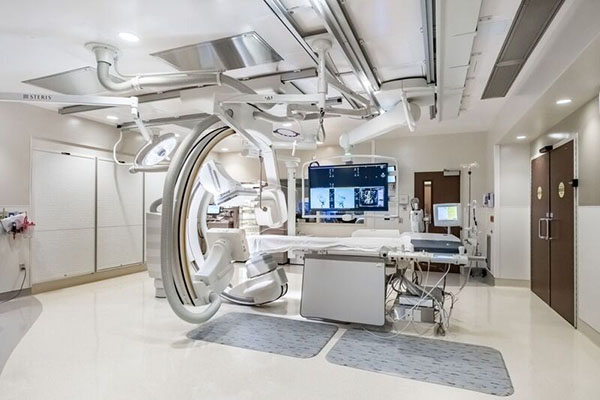Stroke is one of the leading causes of death and disability. However, with proper awareness and prevention, 80 percent of strokes can be avoided. Wellington Regional Medical Center offers the following questions and answers regarding stroke awareness.
1. What is a stroke?
Stroke is a medical emergency that can happen to anyone at any time. When stroke occurs, blood flow to a specific area of the brain is cut off. It deprives the brain of oxygen, causing the brain to die. When these brain cells die, the abilities controlled by this specific area of the brain are lost. This could include memory or muscle control. Each year, nearly 800,000 people will suffer a stroke. The good news is that 80 percent of strokes can be prevented.
2. How would I recognize the signs of a stroke in myself or a loved one?
An easy way to spot a stroke is F-A-S-T, and acronym that stands for:
F – Face drooping
A – Arm weakness
S – Speech slurring
T – Time to call 9-1-1
If you are unsure if someone is experiencing a stroke, it is better to play it safe than sorry. Every minute, 1.9 million brain neurons die, which can prohibit muscle and memory use. The sooner you can get to the hospital and receive proper care, the better.
3. How can I prevent stroke?
The American Stroke Association recommends a minimum of 30 minutes of aerobic activity daily. Exercise and proper nutrition are the most effective ways to prevent stroke. There is a direct correlation between a high sodium diet and stroke.
4. What is Wellington Regional Medical Center doing in the local community to prevent stroke?
Wellington Regional has partnered with the American Heart Association/American Stroke Association for a year-round campaign that will educate the local Wellington community of the signs and symptoms of stroke. Stay tuned for more details on this.
5. What does this stroke comprehensive center mean for the Wellington community?
It means that Wellington Regional is able to effectively treat every type of stroke right here in the local community. It also means less transport time for patients, which is a great service to the community since every second counts when it comes to stroke.
6. The American Heart Association/American Stroke Association has a branding campaign entitled ‘Life Is Why.’ Tell us, why do you do what you do? What is your personal why?
Saving lives is why, because everyone should have the chance to live life without the worry of whether heart disease, stroke or the effects of them will touch them.
To learn more about the American Heart Association/American Stroke Association, visit www.strokeassociation.org. To learn more about the services available at Wellington Regional Medical Center, visit www.wellingtonregional.com.
ABOVE: The Neurointerventional Lab at Wellington Regional Medical Center.








